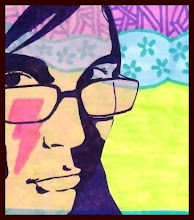 Now, I understand that with the issue of their own children, some parents may exercise the right to keep their children from reading certain books, just as some parents may choose not to allow certain television, movies, or music into the home. But when arbitrary panels of lawmakers, parent groups, or educators take the matter into their own hands, they are refusing students the ability to make their own decisions about what is suitable reading material, effectively limiting their ability to discover the world around them through an intellectual medium that provides open and thoughtful discussion on a topic.
Now, I understand that with the issue of their own children, some parents may exercise the right to keep their children from reading certain books, just as some parents may choose not to allow certain television, movies, or music into the home. But when arbitrary panels of lawmakers, parent groups, or educators take the matter into their own hands, they are refusing students the ability to make their own decisions about what is suitable reading material, effectively limiting their ability to discover the world around them through an intellectual medium that provides open and thoughtful discussion on a topic.The act of reading itself is always a choice: no one can force you to read the words on the page, even if they put the book in front of your eyes. Why shouldn't that choice be left to the person doing the reading? And where do the limits on suitable material stop? It is already easy to notice the trends in some of the most commonly banned books of all time (the list of the top 100 can be found here) and they seem to revolve around books that deal with race, sexuality, gender confusion or violence. It is logical to suggest that the censorship is used entirely as a way of attempting to suppress discussion or advancement on such issues and in turn suppress such people. The only thing offensive about The Adventures of Huckleberry Finn is that a black man is allowed to be a character, and the frank discussion about the validity of slavery and the treatment of black people that it suggests.
In any event, I encourage you all to read banned books and exercise your right to make choices for yourselves. Because ultimately, that is a freedom we all have and that extends to your choice in books.
For useful information on banned books, check out these websites:
ALA Banned Books Week
AS IF! Authors Support Intellectual Freedom
Huffington Post - Banned Books Week: Still Needed In The US
Banned Books Week Website
The Map Of Book Censorship - this one really gets me




1 comment:
I love banned books!!!!
Post a Comment